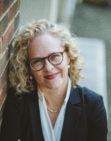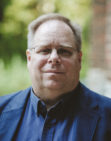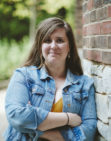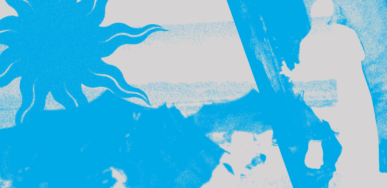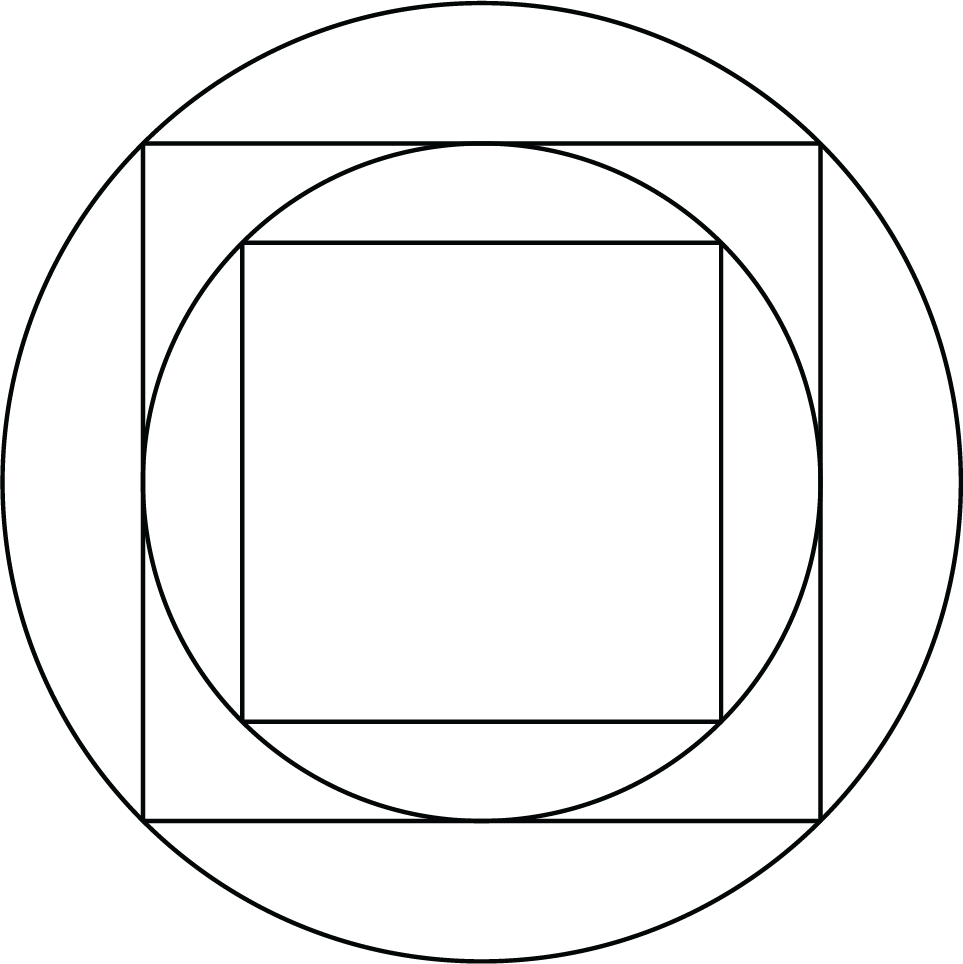
Martien Halvorson Taylor: And I'm Martien Halverson Taylor. And this is Sacred & Profane. Today on the show, we're exploring how America's past can help us think about religion, pluralism and tolerance today. You may recall our episode about the political legacies of the Persian king Cyrus. He's a major figure in the Hebrew Bible, and one of the leaders who was often compared to Cyrus the Great was George Washington, did his supporters. He was an "American Cyrus," who was both a great military leader and a champion of religious freedom. But not everyone loved Washington, and his detractors had a comparison of their own, Washington, they said, was like the so-called grand lama of Tibet, sitting on his remote mountaintop at Mount Vernon, doing nothing while his followers blindly worshiped him.
Kurtis Schaeffer: I first came across these comparisons while researching how much people in early America knew about Tibet and Buddhism. I was honestly a bit surprised that Tibetan lamas were well-known enough that a snarky politician or newspaper editor could toss off this reference and expect their readers to understand it. But it turns out it wasn't just that people were writing jokes about Washington doing his mountaintop, at least one 18th century American was finding out all they could about their Tibetan contemporaries.
Hannah Adams (reader): The Grand Lama is a name given to the sovereign pontiff or high priest of the Tibetan Tartars who resides at Paoli Palace on a mountain near the banks of Barumpooter, about seven miles from us at the foot of this mountain is inhabited by twenty thousand lamas or priests who have their separate apartments around about the mountain. He is not only the sovereign pontiff, the vicegerant of the deity on Earth, but the more remote Tartars absolutely regard him as the diety himself and call him God, the everlasting father of heaven.
Kurtis Schaeffer: So, some of this is accurate! The Dalai Lama did have a huge palace, probably one of the biggest buildings in the world at the time. It is located on the Brahmaputra River in the city of Lhasa. And there were thousands of Tibetan Buddhist monks who lived in monasteries around that city. But there are some problems with the description. A big one is that it completely misses the entire idea of Buddhism. That passage comes from a fascinating book that is both very much of its time when it was first published in 1784 and also breaking new ground.
Martien Halvorson Taylor: The book we are talking about is a dictionary of all religions and religious sects, Jewish, heathen, Mohammedan and Christian, ancient and modern.
Kurtis Schaeffer: That's a very catchy title,
Martien Halvorson Taylor: yes, though despite its grandiose Globe-Trotting title, most of it was written and researched in a tiny corner of Massachusetts by a woman who rarely left Greater Boston and who would become one of the first American women to earn a living solely by writing. How did this author write a book on global religions? Why did her book become a bestseller? And what can that tell us about early notions of religious freedom in the developing American democracy? What motivated her and why does it matter now?
Kurtis Schaeffer: Let's start with the basics. Our author was Hannah Adams.
Hannah Adams (reader): I was born in Medfield, a country town about 18 miles from Boston.
Kurtis Schaeffer: She was the second of five children, her parents were educated but not wealthy.
Hannah Adams (reader): My father early imbibed a love of literature and prepared to enter the university. But as he was the only son, his parents were strenuously opposed to his leaving. This induced in him to open a shop for the sale, principally of English goods and books. His taste for reading continued unabated to his death, which took place at the advanced age of 88 years.
Kurtis Schaeffer: And like her father, Adams had a profound love for books and learning.
Hannah Adams (reader): The first strong propensity of my mind, which I can recollect, was an ardent curiosity and desire to acquire knowledge. I remember that my first idea of the happiness of heaven was of a place where we should find our thirst for knowledge fully qualified.
Martien Halvorson Taylor: But it wasn't simply her ardent curiosity that turned her toward becoming an author.
Toni Wall Jaudon: And her father is a bookseller. Ale's at business, and since she's driven by poverty, by financial need to start writing.
Martien Halvorson Taylor: That's Tony while Shaddai, she's an associate professor of English at Hendrix College and an expert in Hannah Adams and her literary world.
Toni Wall Jaudon: You know, after her father's business fails. You know, she's she's doing this to help family out. And this is where she begins to write. She writes popular histories. She writes dictionaries, religion. But she's she's occupied units for much of her life trying to trying to earn money by her.
Kurtis Schaeffer: It might seem unusual that this is being written by a woman, but not as much as we might imagin. This is around the same time that Mary Wollstonecraft is beginning her career writing and publishing in England. And there are women writing in the U.S., too. One of the best-known poets in America at the time was an emancipated woman named Phillis Wheatley, who also lived near Boston.
Martien Halvorson Taylor: What does set Adams writing, apart from a lot of authors of her day, both male and female, is that she's actually making money, at least on her later editions.
Kurtis Schaeffer: I was surprised to see that US copyright law was only put in place in seventeen eighty three the year before the first edition of the encyclopedia was created, and she used that to her advantage.
Toni Wall Jaudon: Two things are at play, right? First, copyright law is loose, and so she's able to do this, compiling projects without worrying about, you know, any kind of violations there. Right. But so when she enters into a really disadvantageous contract, the terms are just totally against her. And so while it sells and it's popular, she's not the one making any money off of it. And so I can only imagine how much it would have smarted right to have done the labor know all of the labor of the text and to realize that she'd basically gotten suckered. She defends her work and her copyright publicly. After that, she defends her right to be recognized as the author of her own work, right. And to benefit financially from her own labor.
Martien Halvorson Taylor: The other thing about her writing that's fascinating is that it's popular. You have this book going into multiple printings. It's actually making enough money that it's worth fighting over the copyright, looking at best sellers now, which are largely books about history, self-help, a lot of novels. It's kind of astonishing that an encyclopedia of world religions is a big hit.
Kurtis Schaeffer: It makes some sense that it would be popular in the early days of the United States. This is an era of the Enlightenment when there's an idea that everyone having access to knowledge and education is going to change the world for the better. And let's not forget, we're in a young country that's formally committing to both democracy and the separation of church and state and the idea that religious pluralism is something to be encouraged.
Martien Halvorson Taylor: Actually, in that sense, it is a self-help book.
Toni Wall Jaudon: So thinking about Hannah Adams, in the context of being in this young democracy, right, you know, being there at the birth of a nation, this is the time for a work like the dictionary. And this is a healthy part of the democratic impulse. That is to say, she's democratizing access to authoritative knowledge. She's making it possible for people to see and understand. Here's what we know she's careful about. And she's there's a there's a real caretaking being done about the fund of common knowledge that would be available to people in a democratic society. You know, if we're going to have this educated citizenry that someday will hopefully do the work of. Of governing itself, she's interested in making sure that that citizenry has access to not inflammatory material, but rather, you know, measured.
Martien Halvorson Taylor: Toni Wall Jaudon says that an educated public wasn't just an abstract ideal for her, Adams sought to educate herself as well as her readers.
Toni Wall Jaudon: It's not just that she wants to make an encyclopedia of something, but she actually does want to have an encyclopedic knowledge of religion. To be able to grasp the whole and see the whole world and impart that impulse for her seems to come from this place of wanting wanting something other than the language of controversy to talk about forms of religious difference in particular into a Christian denominational difference. She wants to be able to she wants to be able to understand or get her head around first, like why it is there's so many different, you know, splinters or or ways of being Christian, ways of enacting Christianity.
Hannah Adams (reader): I soon became disgusted with the want of candor in the authors I consulted in giving the most unfavorable descriptions of the denominations they disliked and applying to them the name of heretics, fanatics, enthusiasts, etc. I therefore formed a plan for myself, made a blank book and wrote rules for transcribing and adding to my compilation.
Kurtis Schaeffer: And the more she reads and the more she thinks, the bigger this project becomes. She's coming across accounts of all these other Christian sects and there are a lot of those.
Martien Halvorson Taylor: She's also started diving into texts of Christian missionaries who had encountered all sorts of other different religions. She's also reading other encyclopedias and collections that mention religion, even if only tangentially, and all these are broadening the scope of her project. To be sure, her perspective is not always impartial, objective or even correct, since her sources are not. But as she begins to compile her sources, you can tell she is wrestling with the questions of her own faith.
Toni Wall Jaudon: So it's the versions of the dictionary go on. So this is seventeen nineties. Eighteen hundreds. Eighteen teens. She's kind of getting her head around at this point, this idea that's current at the time of the world being divided into four major religious parts. Right. So they're the Christians, there are Jews, there are Muslims. And then there's the category that she would call the people called heathens. You know, basically any religion that doesn't fit with the previous three categories. And so you're seeing in missionary riding around this period, this kind of turn towards statistics. Right. Lots of kind of head counting. And as she acquires and takes on those statistics, you know, it's it's readily apparent to her and she expresses this real concern. You see this kind of trembling that the Christianity, of course, is making these exclusive claims to truth. And yet so much of the world, you know, is not Christian.
Martien Halvorson Taylor: So that makes for a tension in her desire to be evenhanded and to confront the fact that Christianity is competing on a crowded stage. This is one of the things that is remarkable. She's reckoning very early on with global knowledge and perspectives, which she got from libraries and books in her hometown that show that her beliefs are not the only beliefs. In fact, she's recognizing that as a Christian, she's not even in the majority.
Toni Wall Jaudon: She's both fascinated by that variation and I think also troubled by it.
Kurtis Schaeffer: Yeah, so at the beginning of the show, we wondered how this author, who has really not left Massachusetts, is able to get all this information about global religion. And the answer may be that she's able to plug into this larger network of scholars and scholarship in and around Boston. Her project actually feels a little bit like Wikipedia, in a way, she's going around taking notes on any books about religion she can get her hands on first from family and friends. She hangs out in bookstores, taking notes from books she can't afford to buy.
Martien Halvorson Taylor: And as the work keeps getting larger and larger, a friend pays for her membership at the Boston Atheneum, one of the largest libraries in the United States at the time.
Toni Wall Jaudon: She's the first woman to get access to the library collections there precisely because the earlier editions. Are recognized as valuable and I think of what a relief it wa to have a chair and a table
Toni Wall Jaudon: and a literal chair at the table, to write this book rather than standing there in the aisles of the bookshop for hours.
Kurtis Schaeffer: And she kept working on the project even as it went to print several times by the fourth printing. The work was well respected enough that a distant relative invited her to take advantage of his own private library.
Reader: She was invited to pass a week or two at the late President Adams at Quincy with the offer of his library as an inducement to accept the invitation. He was much struck with the rapidity with which she went through folios of the venerable fathers and made some pleasant remarks and consequence which induced her to speak of their contents. He then found that while she had been turning over leaf after leaf, she had been culling all that could be useful in her labors.
Toni Wall Jaudon: Getting access to figures like that is huge.
Martien Halvorson Taylor: It's interesting, though, I mean, that to go back to your thoughts about the materiality of the book, she needed to possess them, right. It wasn't enough to just read them. She needed to copy them and have and have them. I mean, so much when we scroll through Google searches, you know, it's it's ephemeral. It's fleeting. We don't have that. The act of copying as an act of of possession. Yes.
Toni Wall Jaudon: Yes. And you're right. And this is where the regional office really from understanding how do get of this act, all of us as researchers or even that's totally in one of the things that we've become a sense of where she's taking that it's still in that house and that way of working in the world. It's not the same if want to be right. But it's it's it's real. It's powerful.
Kurtis Schaeffer: And she always enables her readers to go fact check for themselves because she includes her sources. I think that's one thing that really differentiates the form of her work from our current media environment, where there is no need in most social media to show your sources, to show your work. It's just there in a kind of timeless presence.
Toni Wall Jaudon: Right, and I think it's interesting as well that so you use an encyclopedia and it's like, well, I'm going to find out some knowledge. Right. And so you're doing the work of fact checking makes you a more autonomous and responsible person who's engaged in the pursuit of knowledge. Adams is giving you her sources. Right. So you see the entry and then you'll see at the bottom, you know, little Astrachan motions, geography or particular text. She's citing the of that project of being a person who looks up sources and atoms is turned towards the positive and responsible. And whereas because we have so much everything from the weak to just false information out there that doesn't cite sources that good desire to be a person who, in fact, is really led astray by contemporary media forms.
Martien Halvorson Taylor: So we have this extraordinary physical object that an author, an 18th century Boston, compiles to try to reckon with the sheer diversity of religions in the world. It's not complete or completely accurate, but even as it goes astray, her book is a proponent for what she calls our curiosity and maybe even the beginning of tolerance. It at least seems to show a real interest by her and her fellow Americans in making sense of their place in the world. What should we make of it?
Toni Wall Jaudon: I think one one thing that Adams helps us to understand and remember is the territory and the people that become the United States in this period that is also new. That is this experiment is also deeply global. Right now. People are aware that there's a world out there that that's this is a there's this always already this sense of deep connectedness between America and American ness and ideas about the outside world. And we can see how deeply tied into the rest of the world the American reading population always already is.
Kurtis Schaeffer: Is there any value today about knowing about the American past as an historian of of of knowledge production in America? Is there a value today? Yeah, professionally, we hope so.
Toni Wall Jaudon: I mean, I have it professionally. We have so. Right. I think there is I mean, because history can be taken as often about legacy. That is to say, like what the question of the past is what has we have we inherited. But another valuable way to look at it is not necessarily that we have inherited everything from the past because ideas stopped. I right things, things go away. And so learning about past worlds and past ways of living in the world and people like Hannah Adams, what that provides for us is other options. You know, this is another way that somebody lived in a world full of difference. It's not our world. It's not the same problems necessarily. But here's how she did it. And that can be I think that's that's in the service of expanding our world, making our world richer, more complex. From Adam's perspective, she's a person who struggled and struggled in public intellectually with these ideas and and tried to think about them fairly and well. And and that's important for us. I think that's a great example for us. It's maybe we could use we could use a little bit more of that in our
Kurtis Schaeffer: Sacred & Profane was produced for the Religion, Race and Democracy Lab at the University of Virginia. Our program manager is Ashley Duffalo. Our senior producer is Emily Gadek. Kelly Jones is the lab's editor. Our guest is Tony Wall Jaudon. Our readers are Angie Chatman and Meghan Sinclair.
Martien Halvorson Taylor: Music for this episode comes from Blue Dot Sessions. You can find out more about our work at Religion Lab Dot Virginia Dot Edu or by following us on Twitter at the religion lab.
Today on the show, we dive into one the best-selling books in the early United States: a massive compendium of world religions. It’s a work that’s incomplete, and often incorrect, but also one that shows how citizens in the early days of the republic were exploring ideas about faith, tolerance, and religious pluralism. And almost as interesting as the book itself is its author, a woman who lived and died in greater Boston, but never stopped thinking of a much larger world.
How to cite this episode:
Halvorson-Taylor, M., Schaeffer K. (Presenters), Jaudon, Toni Wall. (Guest), & Gadek, E. (Producer), “The Dictionary of All Religions.” Sacred & Profane (2021, May 25).
Additional Reading
Adams, Hannah. A Dictionary of all Religions and Religious Denominations, Jewish, Heathen, Mahometan and Christian, Ancient and Modern: with an Appendix, Containing a Sketch of the Present State of the World, as to Population, Religion, Toleration, Missions, etc., and the Articles in which all Christian Denomination Agree, 4th ed New York: James Eastburn and Company, 1817.
Adams, Hannah, & Lee, Hannah Farham Sawyer. A Memoir of Miss Hannah Adams. Boston: Gray and Brown, 1832
Jaudon, Toni Wall. “The Compiler’s Art: Hannah Adams, the Dictionary of All Religions, and the Religious World.” American Literary History, Vol. 26, Issue 1 (2014): 28-31.
Schmidt, Gary. A Passionate Usefulness: The Life and Literary Labors of Hannah Adams. Charlottesville: University of Virginia Press, 2004.
Tweed, Thomas. “An American Pioneer in the Study of Religion: Hannah Adams (1755-1831) and her Dictionary of All Religions.” Journal of the American Academy of Religion, Vol. 60, No. 3 (Autumn, 1992): 437-464.


